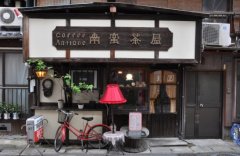Arabs pay attention to all kinds of coffee.

Arabs like to drink coffee, this kind of coffee is called Turkish coffee or Arabica coffee, the cup is small, strong, the color is close to black. Usually, they have a drink after dinner or when they entertain guests, and it is a big part of their lives to go to a cafe when they are all right.
This kind of coffee is popular in the Middle East, North Africa and Central Europe. Unlike other coffees, Turkish coffee is made in a special way. Generally use a small iron gourd-shaped coffee pot, add water and put it on the stove to boil, then put in the coffee powder and gently stir. Usually experienced people will skim a layer of foam from the top and divide it into different cups to add fragrance to the taste.
After cooking, they will put them in small cups the size of Chinese wine cups and serve them on trays. There are three general flavors of coffee: no sugar, less sugar, and polysaccharide. In Arabic, there are special words for all three flavors: sugar free is called "Saida", less sugar is called "Vassett", and polysaccharide is called "Ziad". They'll ask you which flavor you want before cooking.
For people who are not used to this kind of coffee, they may not be able to sleep all night. Another feature of this kind of coffee is that people who like it find it fragrant to their nostrils, while those who don't like it find it extremely bitter to swallow. As soon as you sit down, the host will ask you "coffee or tea". If you want coffee, he will immediately arrange for the hostess to make it.
In Palestine, drinking coffee is more about expressing an attitude. When you are a guest in a Palestinian house, the host had better drink all the coffee, because if you don't drink it, they will think that you have a problem with them, or that you have come to make trouble. Palestine is a family society, when there is a conflict between families, one side goes to the other's house to reconcile, after pouring the coffee, the one side will not drink at first, until the two sides reach an agreement, they will drink it at once.
Usually, when the man goes to the woman's house to propose, he will not immediately drink the coffee poured by the woman's house, and the man's family will not drink the coffee until the woman's father says, "agree to marry your daughter." If rejected by the woman's family, the man will not drink coffee, but will leave in a huff.
In addition, coffee has a suggestive effect. When you go to an Arab house for dinner, you will have a cup of "welcome coffee" before the meal, and then they will give everything they have: eat a big meal, eat fruit, drink tea and chat with you. If the time is almost up, the host will ask, "would you like some coffee?" this cup of coffee is called "send-off coffee". After drinking the coffee, you have to say goodbye. If you really don't know each other and stay there, the host will yawn and stretch to remind you that it's time to go.
There is another feature of coffee served by Palestinians, that is, it is accompanied by a cup of water, but no matter how many guests will only serve a cup of water. No one knows how to drink this glass of water, it's just a decoration. The older man introduced the reason, saying that it has been a tradition for many years. If the guest drinks the coffee before drinking it and proves that the guest is hungry, he should prepare the meal for him immediately. If he doesn't drink it, he doesn't need it. But there are other theories, such as because Turkish coffee is very strong and has coffee grounds at the bottom, this cup of water can be used to gargle.
With the development of the times, young people are more and more inclined to drink coffee such as cappuccino and mocha, and they do not like to go to traditional small cafes, but to modern cafes with music, western food and fashionable men and women. Although cafes have a special word in Arabic, they don't like to use it and prefer "coffee shop".
Important Notice :
前街咖啡 FrontStreet Coffee has moved to new addredd:
FrontStreet Coffee Address: 315,Donghua East Road,GuangZhou
Tel:020 38364473
- Prev

The origin of ice drop coffee
Ice drop coffee originated in Europe. Because the coffee distiller was invented by the Dutch, some people call it Dutch Coffee, espresso or water drop coffee.
- Next

Japanese coffee culture
The first coffee spread to Japan was Nagasaki in the Yuanlu period. And people officially accepted it from the Meiji era.
Related
- How did the Salvadoran coffee industry develop in Central America?
- What exactly does the golden cup extraction of coffee mean?
- The Origin of Coffee flower
- [2023 Starbucks World Earth Day] there are more meaningful things besides free Starbucks coffee!
- What kind of coffee is there in Spain? 9 Flavors of Spanish Coffee
- Aromatic African coffee| Kenya's coffee culture and historical production area
- Liberica Coffee Bean knowledge: the characteristics of Liberian Coffee beans of the three original species of Coffee beans
- The origin and formula of Spanish latte introduces the taste characteristics of Bombon coffee in Valencia, Spain.
- How to adjust the solution of over-extracted coffee
- What is the tasting period of coffee beans? What is the period of coffee and beans? How should coffee wake up and raise beans?

